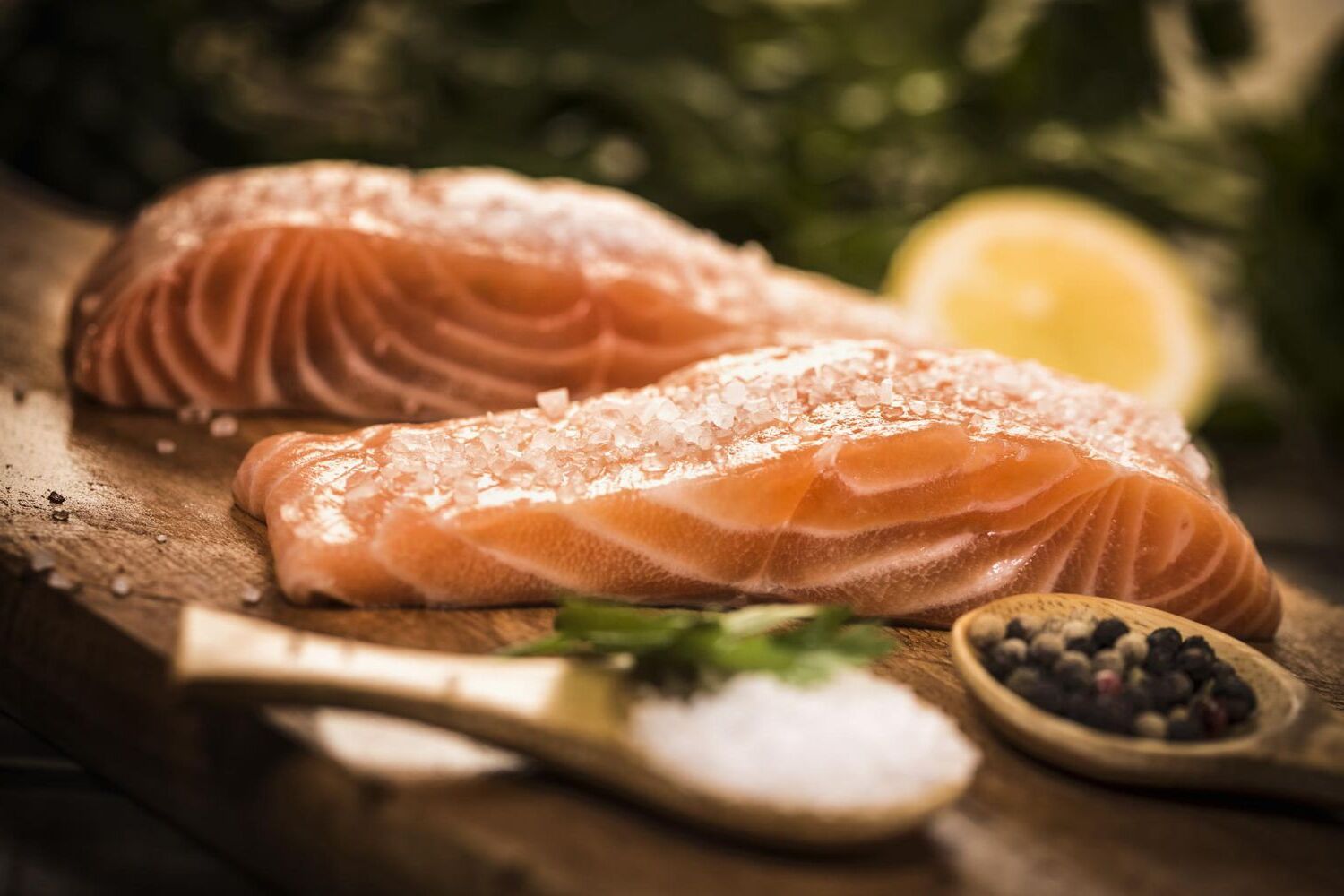
Ever wondered why sockeye salmon stands out in the seafood aisle? Sockeye salmon isn't just another fish in the sea; it's a powerhouse of nutrition that deserves a spotlight. From its vibrant red flesh to its rich, distinctive flavor, this fish is more than just a tasty meal—it's a bundle of health benefits swimming your way. But what makes it so special? Loaded with omega-3 fatty acids, high-quality protein, and essential vitamins, sockeye salmon is a true superhero of the sea. Whether you're a fitness enthusiast, a health-conscious foodie, or just someone looking to add a splash of color and nutrition to your diet, understanding the nutritional facts about sockeye salmon can transform your meals and your health. Ready to dive into the world of sockeye salmon and discover what makes it a must-have on your plate? Let's get swimming!
Key Takeaways:
- Sockeye salmon is a nutritional powerhouse, packed with omega-3 fatty acids, vitamin D, and protein, supporting heart health, brain function, and muscle building.
- When cooking sockeye salmon, opt for gentle methods like steaming or poaching to retain its nutrients, and be mindful of sourcing to support sustainable practices.
What Makes Sockeye Salmon Stand Out?
Sockeye salmon, known for its vibrant red flesh and rich flavor, is not just another fish in the sea. This species, also called red salmon, thrives in the North Pacific Ocean, making significant journeys from their oceanic habitats to freshwater rivers to spawn. What sets sockeye apart is not only their life cycle but also their nutritional profile, which boasts benefits for heart health, brain function, and more.
- Sockeye salmon is exceptionally high in omega-3 fatty acids, crucial for reducing inflammation and supporting cardiovascular health.
- Unlike some other salmon species, sockeye's diet consists almost entirely of plankton, which contributes to its deep red color and distinctive taste.
- This fish is a fantastic source of vitamin D, essential for bone health and immune function.
Nutritional Benefits of Sockeye Salmon
Diving deeper into the nutritional value, sockeye salmon emerges as a powerhouse of vitamins and minerals. Each serving packs a punch, providing substantial health benefits.
- Sockeye contains selenium, a mineral that plays a key role in metabolism and thyroid function.
- It's also rich in protein, offering about 23 grams per 3-ounce serving, which helps in muscle building and repair.
- The presence of vitamin B12 in sockeye salmon aids in red blood cell formation and prevents anemia.
How Does Sockeye Salmon Support Brain Health?
The brain benefits from sockeye salmon's nutrient-rich profile in several impactful ways. Omega-3 fatty acids, in particular, are stars in this role.
- Omega-3s found in sockeye help improve cognitive function and may reduce the risk of Alzheimer's disease.
- These fatty acids also contribute to the maintenance of normal brain function throughout life.
- Eating sockeye salmon can enhance mood and decrease the risk of depression, thanks to its omega-3 content.
Sockeye Salmon in Your Diet
Incorporating sockeye salmon into meals is not only a treat for your taste buds but also a boon for your health. Here are some tips and facts about making it a part of your diet.
- Grilling, baking, or broiling sockeye salmon are healthy cooking methods that preserve its nutritional integrity.
- Combining sockeye with leafy greens, whole grains, or legumes makes for a balanced and nutritious meal.
- Due to its rich flavor, sockeye salmon requires minimal seasoning, making it a simple yet delicious addition to any meal plan.
Sustainability and Environmental Impact
Choosing sockeye salmon is not only good for you but can also be a responsible environmental choice, depending on sourcing practices.
- Wild-caught sockeye salmon is considered one of the more sustainable options among seafood, with strict regulations in place to manage stocks.
- Opting for sockeye salmon from certified sustainable fisheries can help support healthy ocean ecosystems.
- However, consumers should be aware of the environmental impact of farmed salmon, including potential risks to wild salmon populations.
Potential Health Risks and Considerations
While sockeye salmon is a nutritious choice, there are a few considerations to keep in mind to ensure it's enjoyed healthily and safely.
- Pregnant women and young children should limit their intake of sockeye salmon due to mercury content, although it's generally lower than in many other fish.
- Overconsumption of any type of salmon, including sockeye, could lead to an excessive intake of certain minerals like selenium, which, in very high amounts, can be harmful.
- Always ensure that sockeye salmon is cooked to an internal temperature of 145°F to avoid the risk of foodborne illnesses.
Cooking Tips for Maximum Nutrition
To get the most out of sockeye salmon's nutritional benefits, how you prepare it matters.
Sockeye Salmon: A Nutritional Powerhouse
Sockeye salmon isn't just another fish in the sea. It's a nutritional powerhouse packed with omega-3 fatty acids, protein, and a slew of vitamins and minerals. These nutrients play a crucial role in heart health, brain function, and overall well-being. Opting for sockeye salmon means choosing a meal that's not only delicious but also incredibly beneficial for your health. Whether grilled, baked, or poached, incorporating this vibrant fish into your diet can make a world of difference in how you feel and function. So next time you're at the market, remember the remarkable benefits of sockeye salmon. It's more than just a tasty option; it's a step towards a healthier, happier you.
Frequently Asked Questions
Was this page helpful?
Our commitment to delivering trustworthy and engaging content is at the heart of what we do. Each fact on our site is contributed by real users like you, bringing a wealth of diverse insights and information. To ensure the highest standards of accuracy and reliability, our dedicated editors meticulously review each submission. This process guarantees that the facts we share are not only fascinating but also credible. Trust in our commitment to quality and authenticity as you explore and learn with us.


